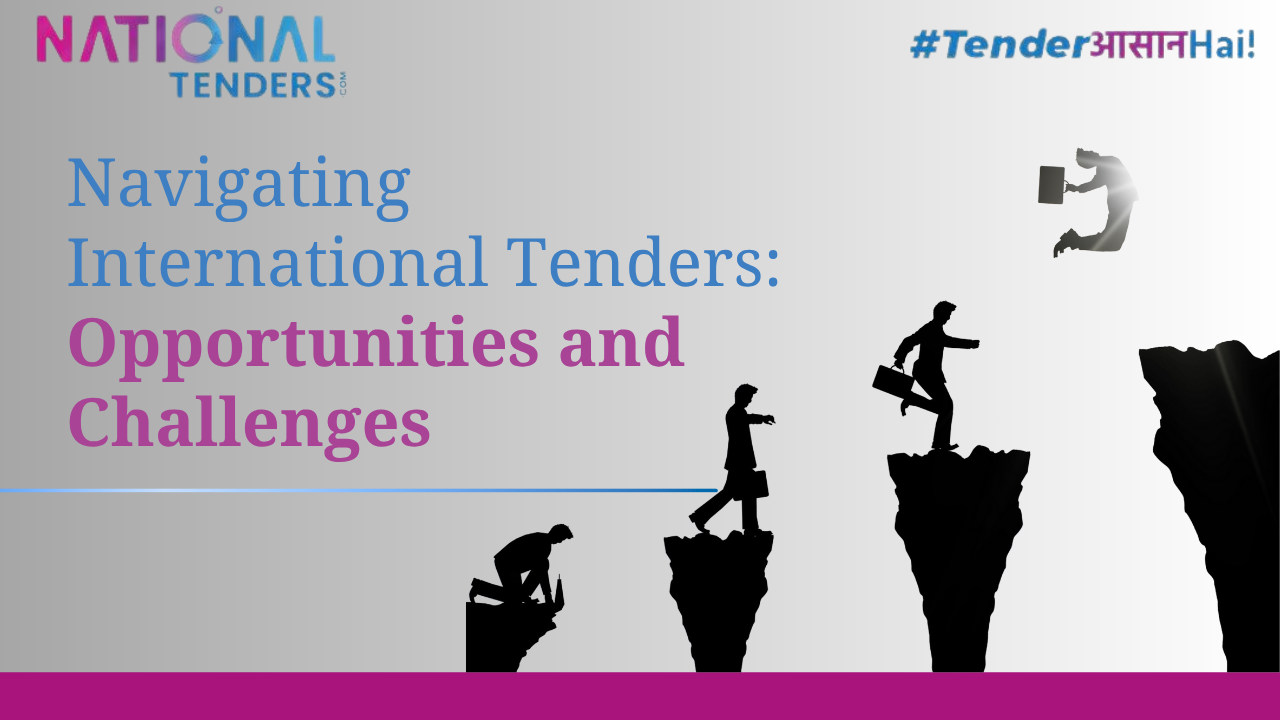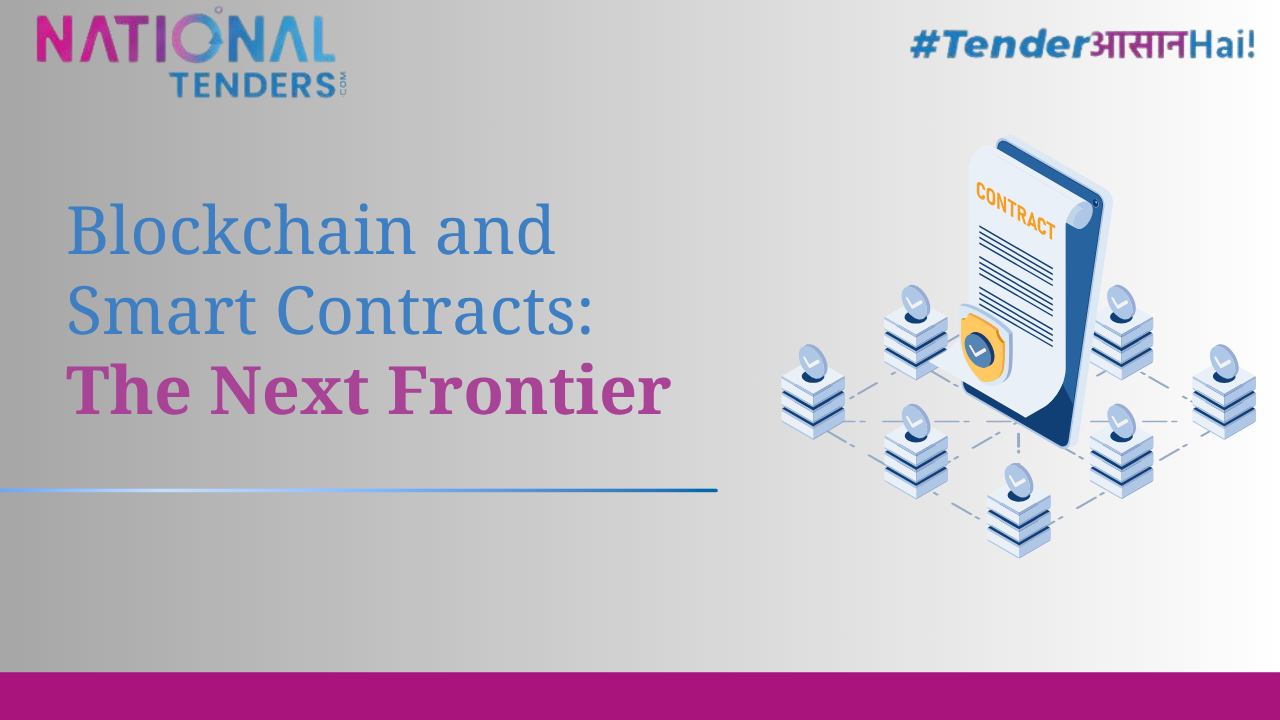- Home
- >
- Blog
OUR BLOG
A collection of stories about our people, our capabilities, our research, and the ever-changing face of our firm.

NationalTender
Navigating International Tenders: Opportunities and Challenges | 30 May, 2025
Navigating International Tenders: Opportunities and Challenges
Imagine your business landing a multi-million dollar contract in a new market—your products or services showcased on a global stage. That’s the power of winning an international tender. But with opportunity comes challenges: fierce competition, complex regulations, and the need to adapt fast. So, how do you turn international tenders into your growth engine?
The Expanding World of International Tenders
Each year, more than EUR 500 billion worth of public procurement tenders are published globally. Platforms like TED (Tenders Electronic Daily) list over 746,000 notices, including 235,000 dedicated to government tenders. For Indian businesses and startups, this opens unprecedented access to global opportunities across infrastructure development, healthcare, renewable energy, and more.
Why Go Global? The Benefits of International Tendering
- Access to New Markets: Diversify revenue streams and expand beyond domestic boundaries.
- Increased Visibility: Winning international tenders enhances brand credibility and future tender prospects.
- Innovation and Growth: Competing globally drives R&D and fosters business evolution.
- Economic Sustainability: Large projects provide long-term stability, cushioning domestic market fluctuations.
Key Opportunities for Indian Businesses
| Sector | Global Opportunity |
|---|---|
| Renewable Energy | Solar, wind, and hybrid projects in Africa, SE Asia |
| Infrastructure | Metro rail, airport, and smart city projects |
| Healthcare | Hospital equipment, telemedicine, pharmaceuticals |
| IT & Telecom | Software, hardware, and telecom equipment exports |
| Agriculture | Farm equipment, irrigation, and water supply |
The Biggest Challenges in International Tendering
- High Competition: Competing with both local players and global giants. Differentiation is essential.
- Complex Regulations: Every country has unique procurement standards; navigating these without local expertise can be challenging.
- Participation Costs: Expenses like translation, legal compliance, travel, and documentation can add up.
- Economic and Political Risks: Currency fluctuations and political instability impact project feasibility.
- Communication and Cultural Barriers: Language, time zones, and differing business etiquettes can affect negotiations and delivery.
Proven Strategies for Success
-
Market Research and Preparation:
Use platforms like eTender India and GeM portal to identify opportunities. Understand local regulations and market dynamics.
-
Build Local Partnerships:
Collaborate with local consulting firms, suppliers, or agents to navigate bureaucracy and establish trust with buyers.
-
Leverage Technology and AI:
Use AI-driven tender management solutions for translation, compliance checks, and bid optimization.
-
Respect Cultural Differences:
Tailor your approach to suit the negotiation styles, documentation, and business norms of the target market.
-
Comply with Local Regulations:
Engage tender consultants or legal experts to ensure your bid meets all local requirements.
-
Invest in Quality Translation:
Professional translation of tender documents minimizes risks of miscommunication.
-
Plan for Logistics and Delivery:
Factor in customs, shipping, and local supply chain realities to ensure smooth delivery.
Risk Management: The FIDIC Approach
The FIDIC Tendering Procedure is a global benchmark for managing risks in international construction tenders:
- Technical Risks: Prequalification and site visits ensure capable bidders.
- Financial Risks: Use tender and performance securities, plus price adjustment clauses.
- Legal Risks: Standardized contracts and dispute resolution mechanisms reduce uncertainties.
Tips for Indian Startups and SMEs
- Begin with MSME or niche tenders in markets with similar regulatory frameworks.
- Leverage registrations like Udyam, NSIC, or GeM for incentives and exemptions.
- Network with chambers of commerce, embassies, and trade bodies for local insights.
- Emphasize innovation and flexibility—Indian firms are valued for adaptability and cost-efficiency.
Table: International Tendering – Opportunities vs. Challenges
| Opportunities | Challenges |
|---|---|
| New markets & revenue | High competition |
| Brand visibility | Complex regulations |
| Innovation & R&D | Participation costs |
| Economic sustainability | Political/economic risks |
| Global networking | Communication & cultural barriers |
Conclusion: Turn Global Tenders into Growth
International tenders are both challenging and rewarding. With the right research, local partnerships, technology, and risk management strategies, Indian businesses can secure and deliver global contracts successfully.
Your Partner in International Tendering
Ready to take your business to the global stage? National Tenders provides expert support with:
- Tender notifications for international opportunities.
- Bid preparation and submission assistance.
- End-to-end tender consultancy services.
Let us help you win big in the international marketplace. Get in touch today and unlock your global potential!
 How E-Tendering is Transforming the Tender System in India
How E-Tendering is Transforming the Tender System in India Building Strong Vendor Partnerships in the Tender Ecosystem
Building Strong Vendor Partnerships in the Tender Ecosystem Unlocking Big Savings Through Smart Tender Strategies
Unlocking Big Savings Through Smart Tender Strategies How Generative AI Is Disrupting Tendering in 2025
How Generative AI Is Disrupting Tendering in 2025 Blockchain and Smart Contracts: The Next Frontier in Public Procurement
Blockchain and Smart Contracts: The Next Frontier in Public Procurement
SUBSCRIBE NOW
Kindly fill up the form